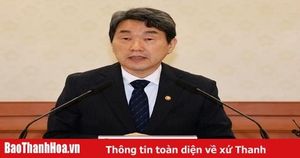Actress Youn Yuh-jung has made headlines after revealing for the first time that her eldest son came out as gay in 2000 and later married his partner in New York, where same-sex marriage was legalized. This revelation came during an interview with Variety on April 18, 2025, ahead of the release of her new film, The Wedding Banquet, a remake of the 1993 film by Ang Lee.
In the interview, Youn shared that she held her son’s wedding in New York, saying, “When same-sex marriage was legalized there, I held a wedding for my child.” She explained that the family traveled to New York because her son’s sexuality was still a secret in their home country of South Korea. “I don’t know what the reaction will be when I go back home,” she admitted, reflecting on the conservative nature of Korean society regarding LGBTQ+ issues.
Youn Yuh-jung, who has gained international acclaim for her roles, including winning an Academy Award for Best Supporting Actress for her performance in Minari, emphasized the personal significance of her role in The Wedding Banquet. She stated, “Korea is a very conservative country. People do not openly admit they are gay in front of their parents.” This context made her connection to the character she plays in the film deeply personal.
In a light-hearted moment, Youn joked about her evolving family dynamics, saying, “Now I love my son-in-law more than my children.” This comment highlights the complexities and humor that can arise in family relationships, especially in the context of cultural expectations surrounding marriage and sexuality in Korea.
The film The Wedding Banquet explores the challenges faced by a gay Korean-American man who is pressured by his family to marry, leading to a fake wedding setup. The original film focused on a Taiwanese-American family, but the remake, directed by Korean-American Andre Ahn, shifts the narrative to a Korean-American context, showcasing the cultural nuances involved.
Youn noted that the dialogue in the film reflects her personal experiences. She revealed that a line spoken by her character to her gay grandson, “You are my grandson, no matter who you are,” was inspired by her real-life sentiments. “I hope this message brings comfort to someone,” she expressed, underscoring the importance of acceptance and love within families.
As the conversation shifted to societal attitudes in Korea, Youn expressed her concerns about how her son’s marriage would be received. “I might come back to people throwing books at me,” she quipped, adding a touch of humor to her serious remarks about the potential backlash from conservative segments of society.
Reflecting on her own life, Youn Yuh-jung was married to singer Cho Young-nam in 1975 and has two sons. After their divorce in 1987, she raised her children alone, navigating the challenges of single motherhood while pursuing her acting career. Her journey has been marked by resilience and dedication, which she has channeled into her work.
As she promotes The Wedding Banquet, Youn hopes that the film can spark conversations about acceptance and understanding in a society that often struggles with these themes. “I want Korea to open its heart,” she said, expressing a desire for greater acceptance of LGBTQ+ individuals.
The film was released in North America on April 18, 2025, and has already garnered attention for its timely subject matter and the personal insights shared by Youn Yuh-jung. As audiences engage with the film, it is likely to contribute to ongoing discussions about LGBTQ+ rights and representation in South Korea and beyond.
In conclusion, Youn Yuh-jung’s candid revelations about her son’s coming out and her experiences as a mother navigating the complexities of love and acceptance in a conservative society provide a poignant backdrop to The Wedding Banquet. Her story not only resonates with many families but also highlights the importance of embracing diversity and fostering understanding across cultural divides.
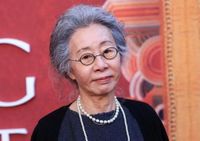
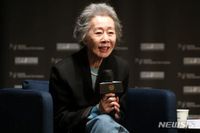
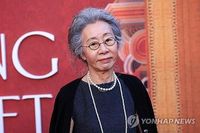
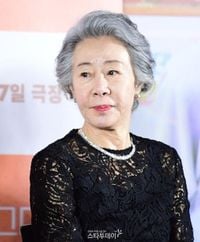
![윤여정, 아들 '동성 결혼' 고백…"子보다 사위 ♥, 韓 반응 어떨지" [엑's 이슈]](https://thumbor.evrimagaci.org/ZDXpyyyHzydcj9yIzvaUqNsz2RM=/200x0/tpg%2Fsources%2Fec67cecc-a755-41d5-9cba-0e640d40d426.jpeg)


